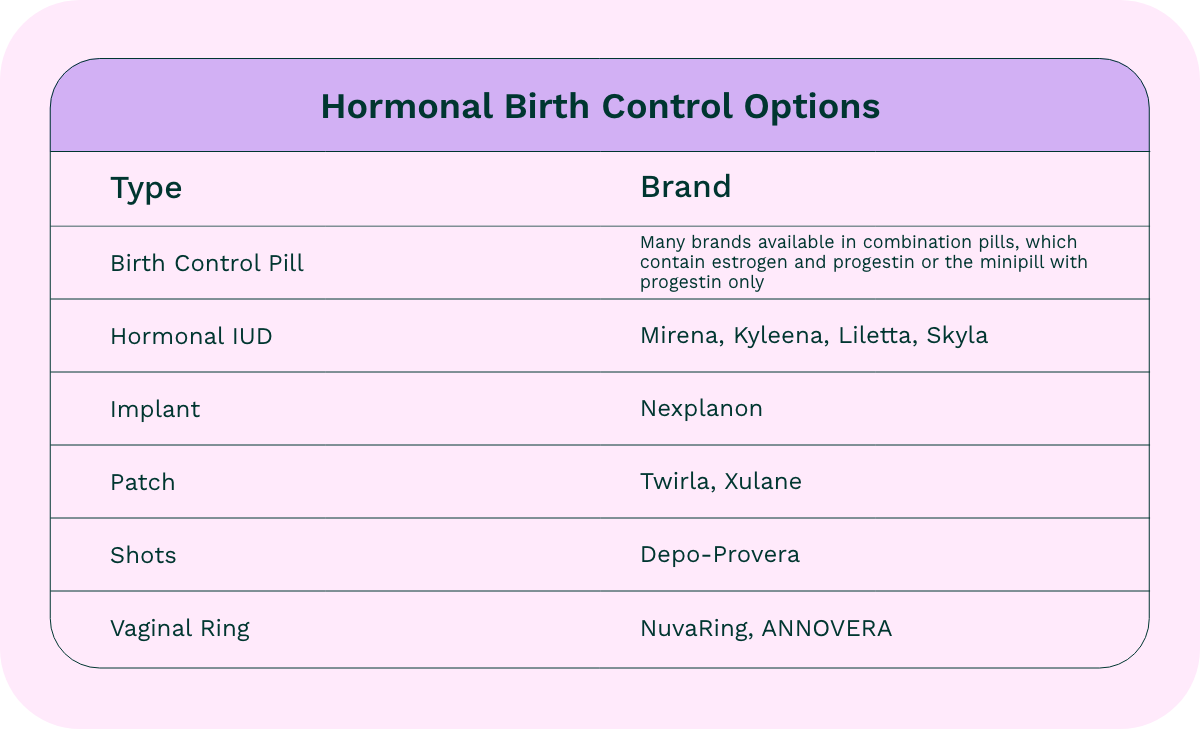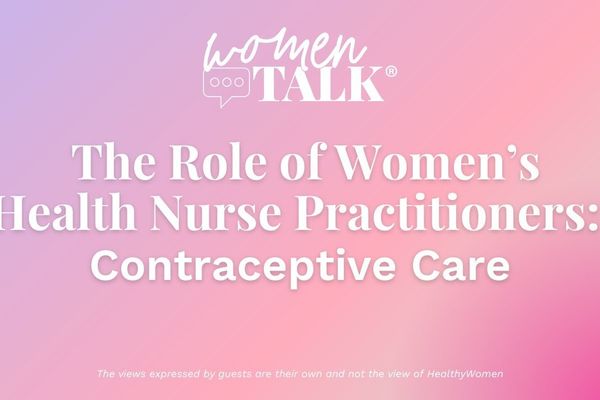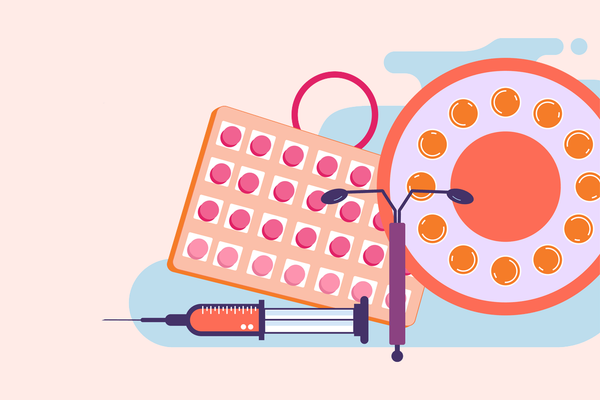The best birth control option varies for each person. It's important to consider factors such as your lifestyle, schedule, medical history and any medicines you take when you pick a birth control method. As these details change throughout your life, the best birth control option for you might change as well.
Talking with your healthcare provider (HCP) can help you decide which type of birth control will work best for you. In the meantime, here are some basic facts about the options.
- Hormonal birth control changes a woman's hormone levels, which makes it unlikely that she can get pregnant.

- Non-hormonal birth control does not change hormone levels in the body. Instead, these options work as a barrier between sperm and eggs.

- How non-hormonal birth control options work:
- Condoms prevent semen from entering the vagina
- Sponges contain spermicide, which kills sperm
- Cervical caps cover the cervix so sperm cannot reach the egg
- Copper IUDs are T-shaped plastic frames that cause an inflammatory reaction so sperm and eggs cannot survive
- Diaphragms cover the cervix and the area around it with a spermicide to kill sperm
- Contraceptive vaginal gel keeps vaginal pH in a range that does not allow sperm to get to an egg
- Condoms, sponges and spermicides are available over the counter at pharmacies and grocery stores, but in most states, all hormonal birth control options, copper IUDs, diaphragms, cervical caps and the contraceptive vaginal gel require a prescription from a HCP. In some states, you can go through a pharmacy to get hormonal birth control.
- Additional benefits of hormonal birth control beyond preventing pregnancy can include relief from menstrual cramps, lighter periods, regulated periods and improved premenstrual syndrome (PMS).
- For women who cannot take estrogen, such as those with a history of breast cancer or certain medical conditions such as obesity, blood clots, heart disease or migraine with aura; women over age 35; and women who smoke, non-hormonal birth control may be an option for preventing pregnancy. Some women may also be able to use progestin-only pills.
This resource was created with support from Evofem Biosciences.
From Your Site Articles
- How to Effectively Use Your Birth Control Pills - HealthyWomen ›
- Your Birth Control Questions Answered - HealthyWomen ›
- Hormonal Birth Control - HealthyWomen ›
- FDA Approves First OTC Birth Control Pill - HealthyWomen ›
- How Hormonal Contraception Works - HealthyWomen ›
- WomenTalk: The Role of Women’s Health Nurse Practitioners: Contraceptive Care - HealthyWomen ›
- Menopause and Contraception - HealthyWomen ›
- Modern Birth Control Methods - HealthyWomen ›
Related Articles Around the Web







